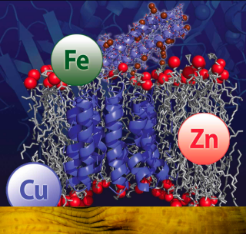Chemistry has always been a fascinating field of study, and it is one that requires a great deal of effort to master. It involves the study of matter and its composition, structure, properties, and reactions. Chemistry can be used to explain the behavior of everything from the atoms in our bodies to the stars in the sky. From understanding how different elements interact with each other to discovering new substances, chemistry is an ever-expanding field that continues to amaze us. Here, we wilhttps://safrole.com/knowledge-base/ stry and take a closer look at what makes it so intriguing.

The Basics of Chemistry
At its core, chemistry is the scientific study of matter and how it changes and interacts with other forms of matter. Chemists have developed numerous theories and laws to describe and explain the behaviors of atoms and molecules. Some of these theories include the Law of Conservation of Mass, the Kinetic Theory of Gases, and the Periodic Table of Elements. These laws and theories allow us to predict and understand the behavior of matter in various situations.
Analytical Chemistry
Analytical chemistry is the branch of chemistry that deals with the analysis of chemical compounds. Analytical chemists use a variety of techniques to identify and quantify the components of a sample. These techniques include chromatography, spectroscopy, and titration. Analytical chemists also use various separation techniques such as distillation and extraction to separate mixtures.
Organic Chemistry
Organic chemistry is the study of the structure, properties, composition, and reactions of carbon-containing compounds. Organic chemists are primarily concerned with the synthesis of molecules for medicinal and industrial purposes. They use a variety of techniques to synthesize organic compounds, including catalytic hydrogenation, dihydroxylation, and hydrolysis. Organic chemists also study biochemical pathways and metabolic changes in living organisms.
Physical Chemistry
Physical chemistry is the branch of chemistry that focuses on the physical properties of matter and the relationships between them. Physical chemists use principles such as thermodynamics, quantum mechanics, and statistical mechanics to study the behavior of atoms and molecules. They are interested in understanding the structure and dynamics of molecules, including the energy states, reactions, and spectra of molecular systems.
Inorganic Chemistry
Inorganic chemistry is the study of the structure and compositions of inorganic compounds. Inorganic chemists are primarily concerned with the synthesis and properties of inorganic compounds, including coordination compounds, organometallics, acids, and bases. They often study the structure and reactivity of metal complexes and polymers, and they use a variety of techniques to characterize these compounds.
Biochemistry
Biochemistry is the branch of chemistry that studies the structures, functions, and interactions of biological molecules. Biochemists study how cells work, how DNA is expressed, and how proteins interact. They also study the metabolism of various molecules and the roles of enzymes in metabolic pathways. Biochemical processes are essential for life, and biochemistry is essential for understanding how living organisms function.
Chemistry is a vast and fascinating field of study that covers a wide range of topics from the smallest particles to the largest galaxies. By studying the behavior of matter, chemists can develop new technologies, medicines, and materials that benefit society. For anyone interested in the science of chemistry, there are many resources available, including textbooks, websites, and online courses. One such online resource is https://safrole.com/knowledge-base/, which contains an extensive library of educational material and research papers on various topics related to chemistry.

